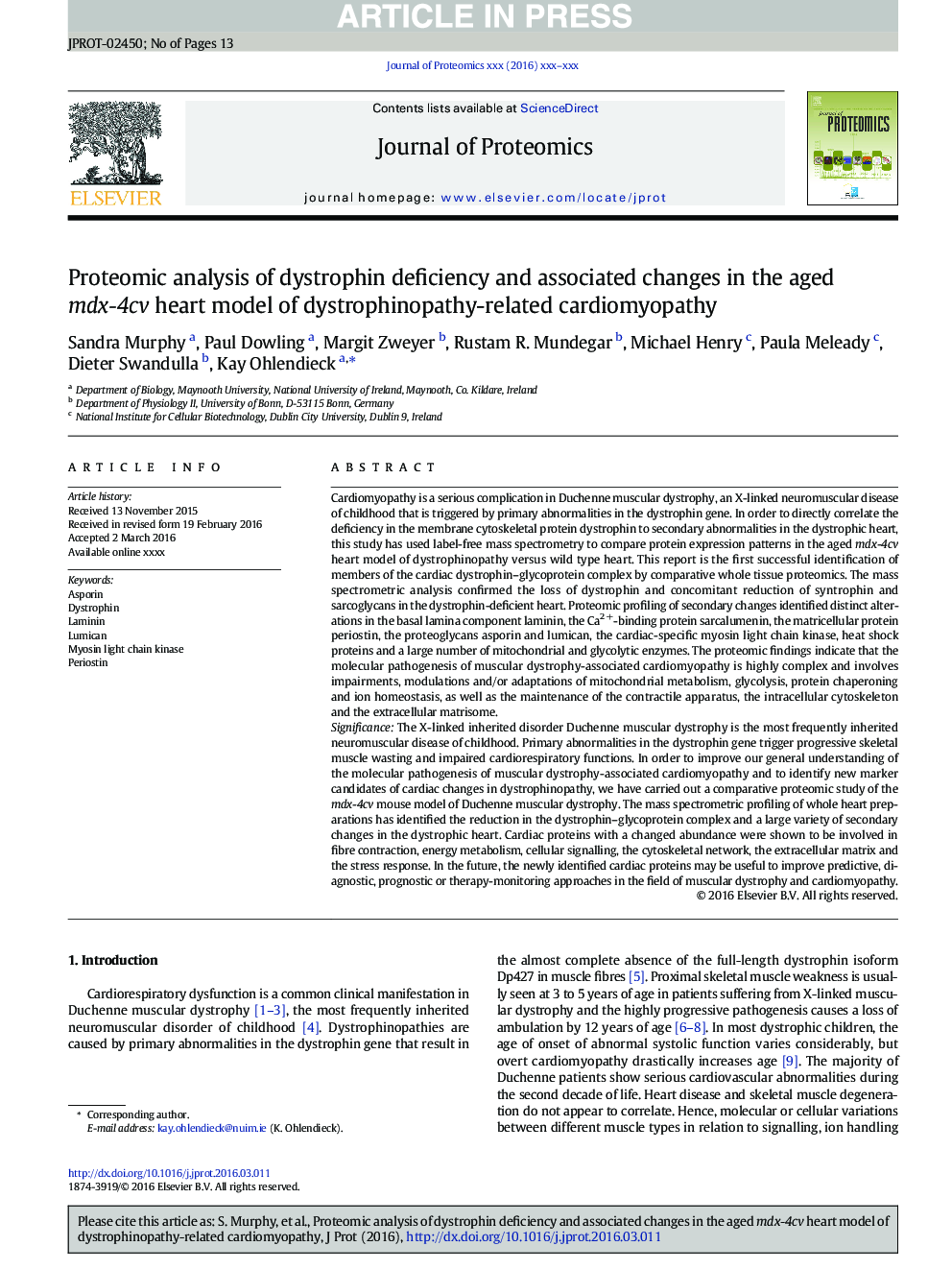| Article ID | Journal | Published Year | Pages | File Type |
|---|---|---|---|---|
| 7634597 | Journal of Proteomics | 2016 | 13 Pages |
Abstract
The X-linked inherited disorder Duchenne muscular dystrophy is the most frequently inherited neuromuscular disease of childhood. Primary abnormalities in the dystrophin gene trigger progressive skeletal muscle wasting and impaired cardiorespiratory functions. In order to improve our general understanding of the molecular pathogenesis of muscular dystrophy-associated cardiomyopathy and to identify new marker candidates of cardiac changes in dystrophinopathy, we have carried out a comparative proteomic study of the mdx-4cv mouse model of Duchenne muscular dystrophy. The mass spectrometric profiling of whole heart preparations has identified the reduction in the dystrophin-glycoprotein complex and a large variety of secondary changes in the dystrophic heart. Cardiac proteins with a changed abundance were shown to be involved in fibre contraction, energy metabolism, cellular signalling, the cytoskeletal network, the extracellular matrix and the stress response. In the future, the newly identified cardiac proteins may be useful to improve predictive, diagnostic, prognostic or therapy-monitoring approaches in the field of muscular dystrophy and cardiomyopathy.
Related Topics
Physical Sciences and Engineering
Chemistry
Analytical Chemistry
Authors
Sandra Murphy, Paul Dowling, Margit Zweyer, Rustam R. Mundegar, Michael Henry, Paula Meleady, Dieter Swandulla, Kay Ohlendieck,
